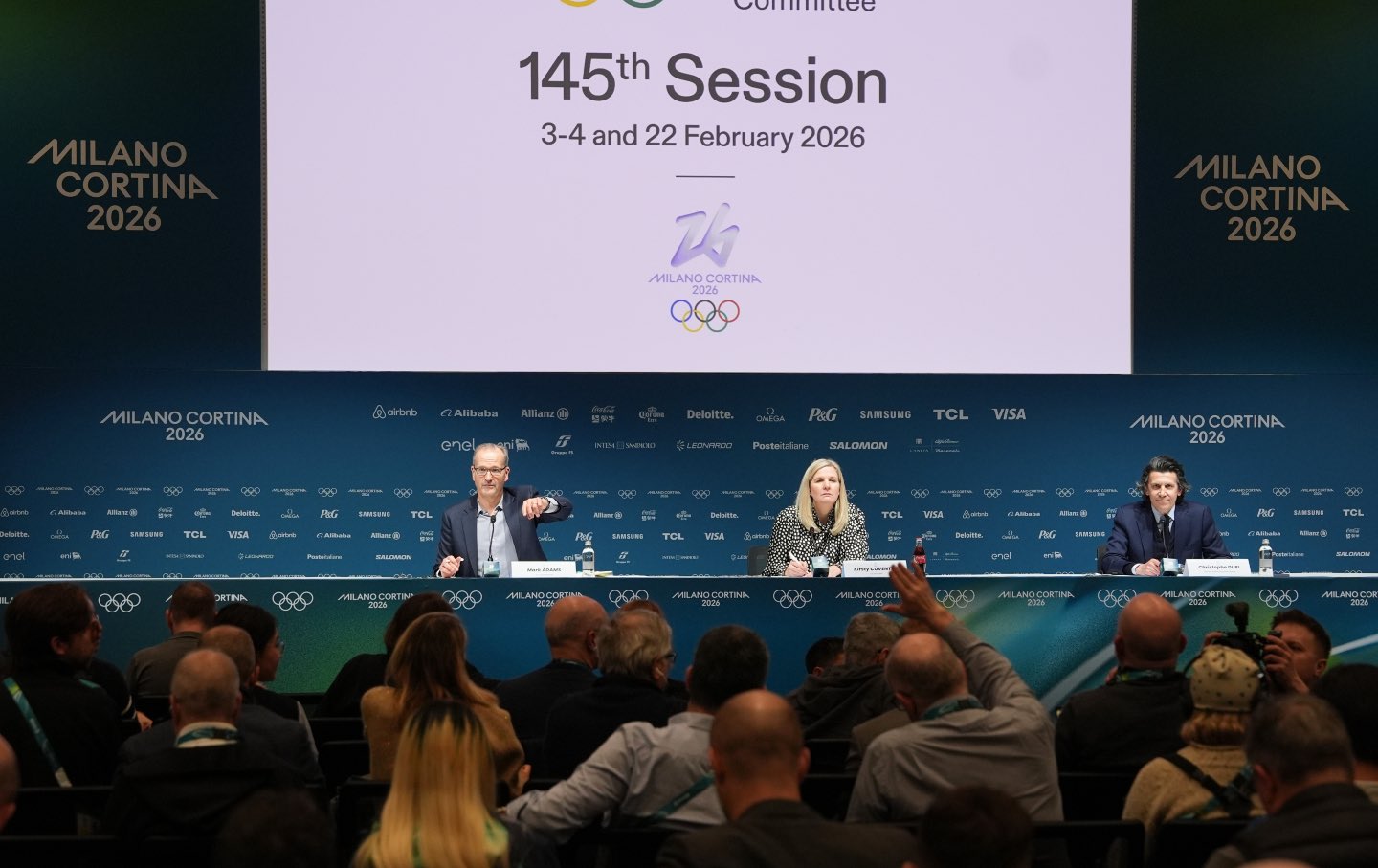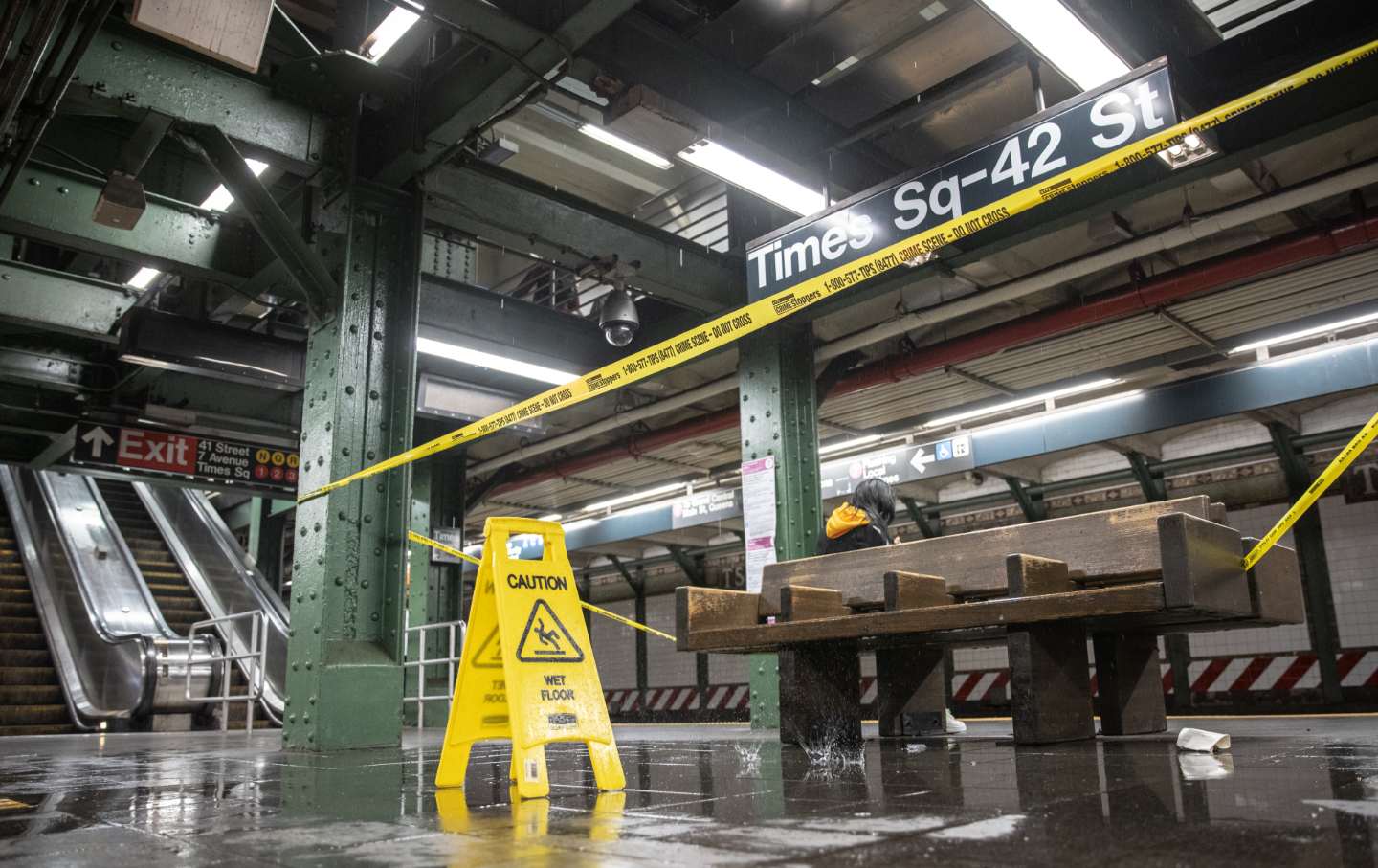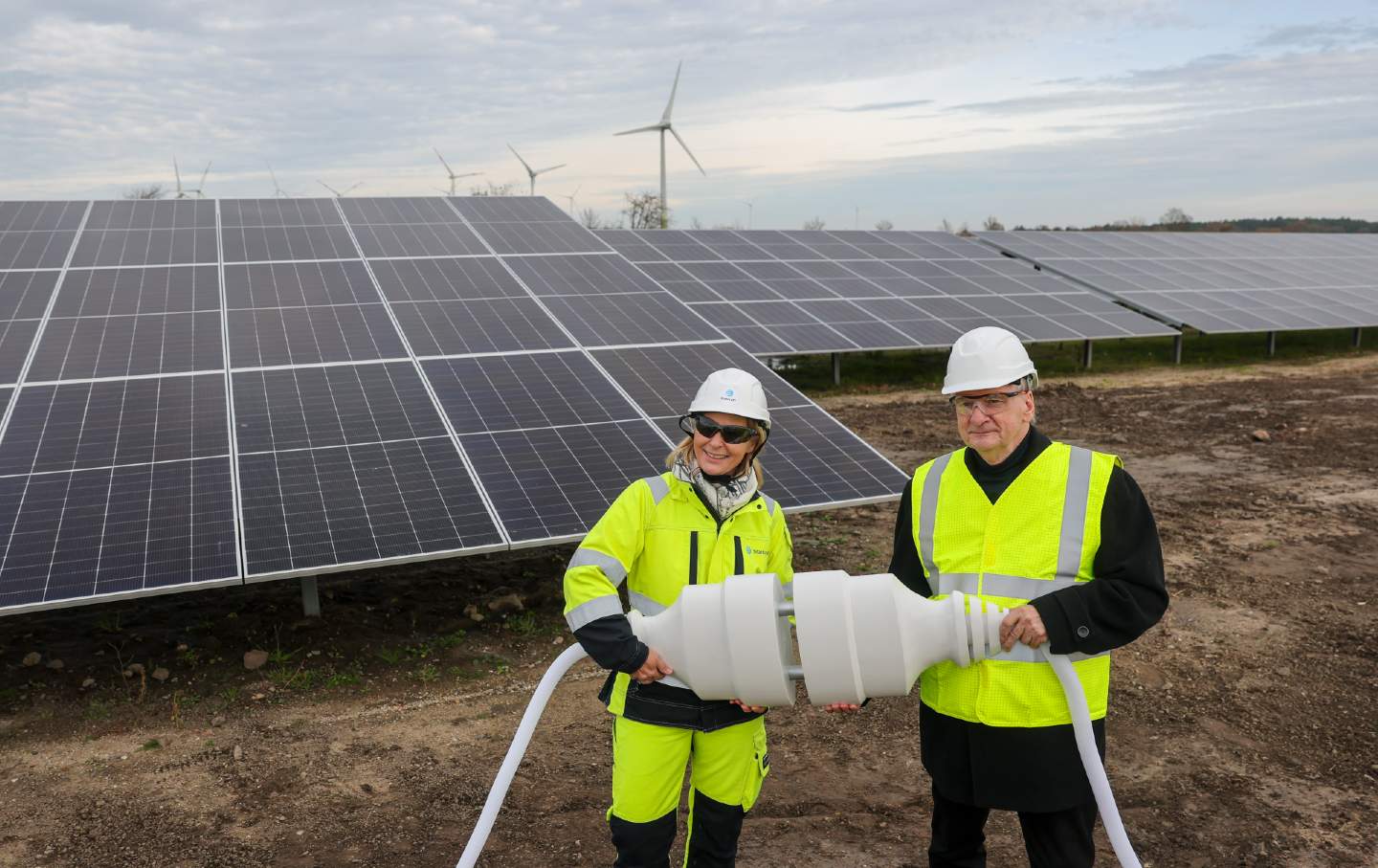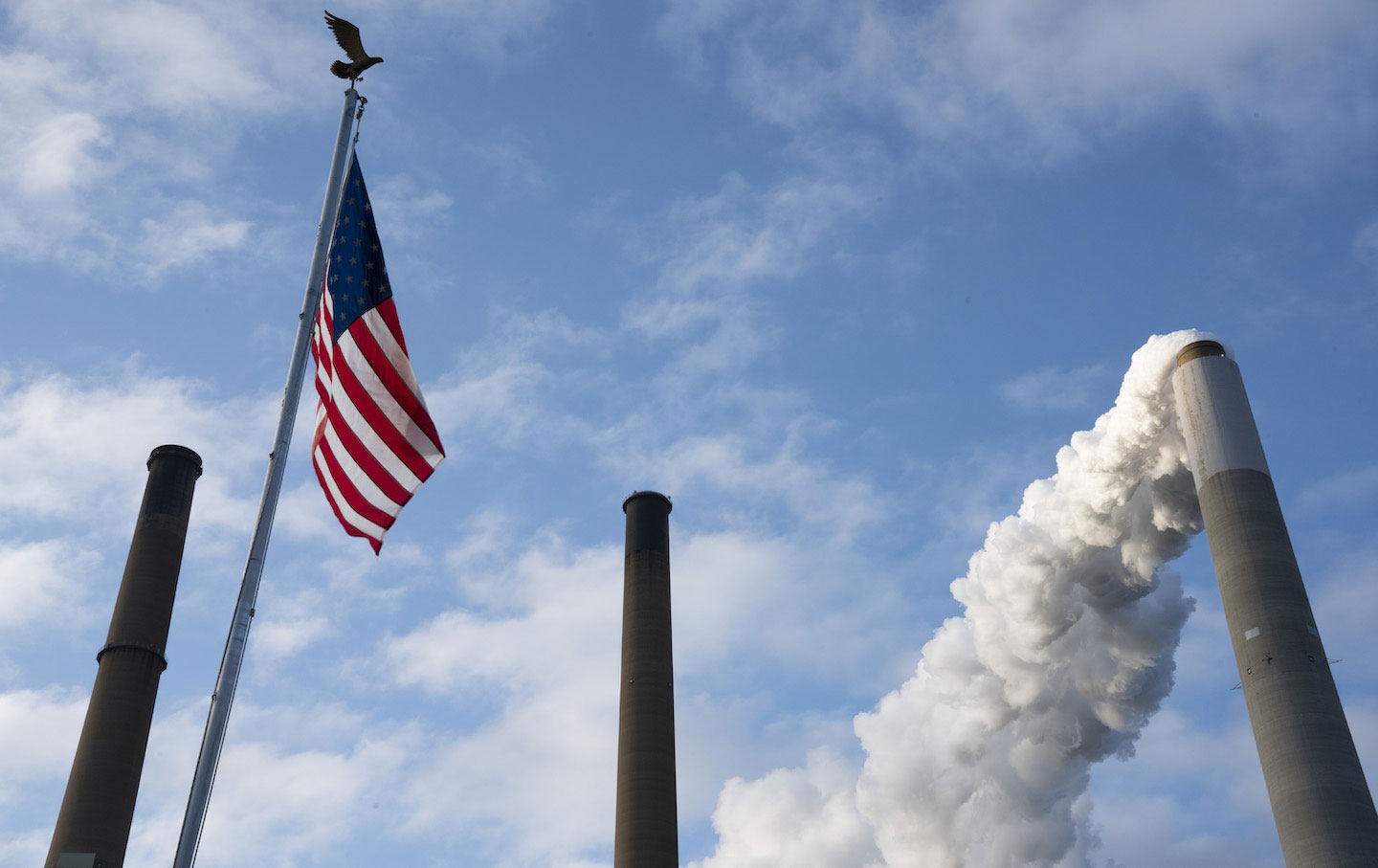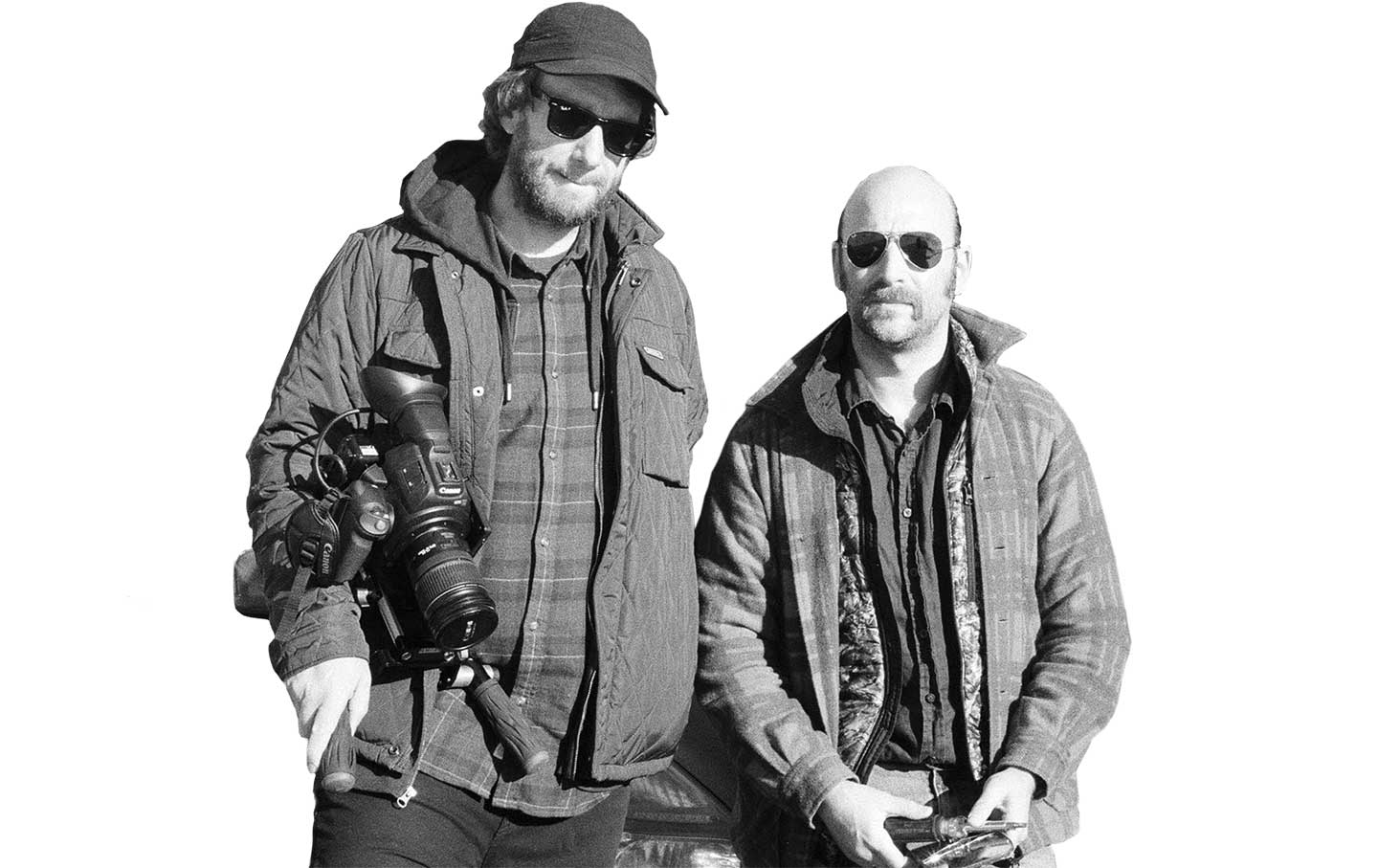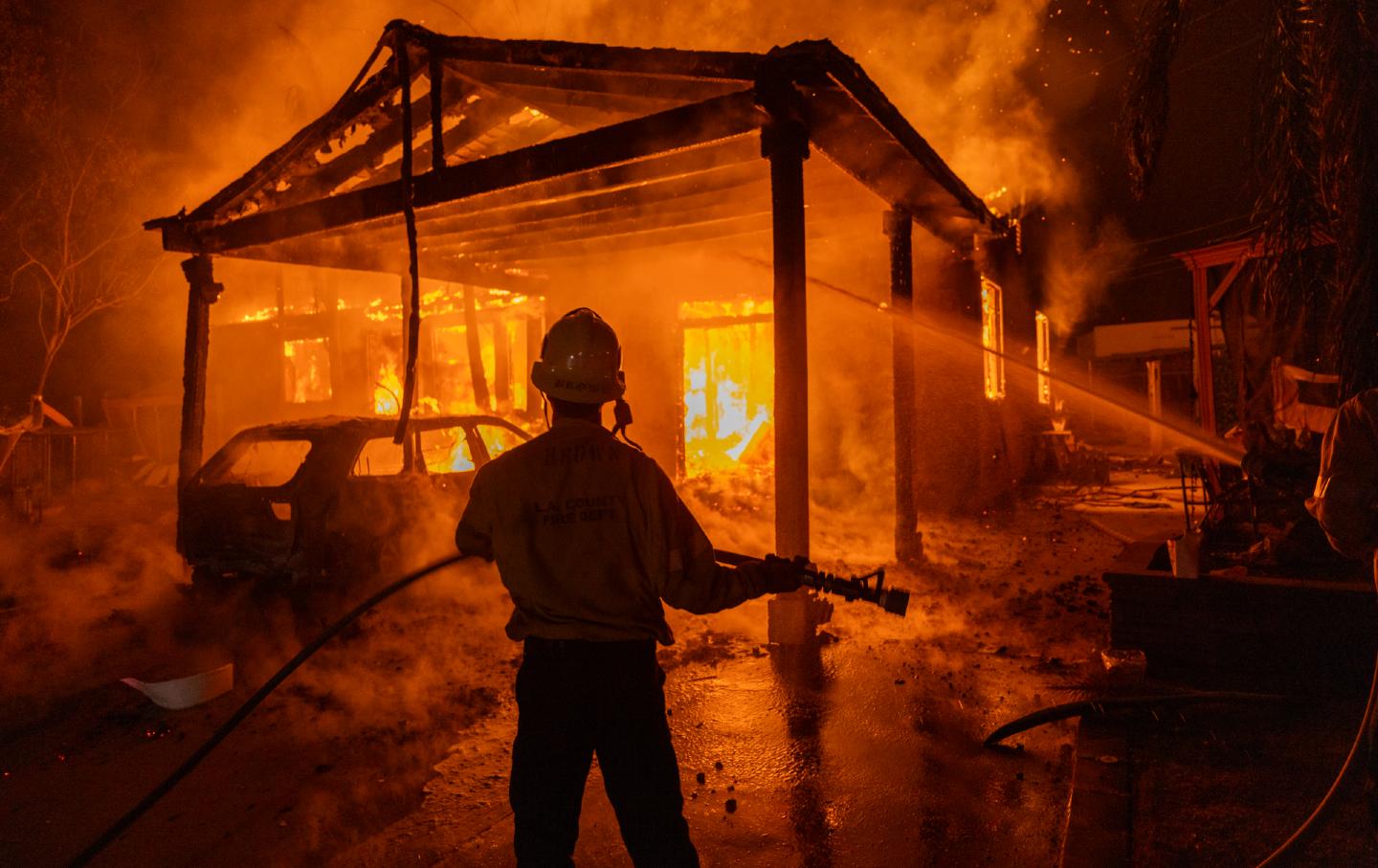Telemundo’s Climate Commitment
The Spanish-language TV network is gaining audience while highlighting solutions to the climate emergency.
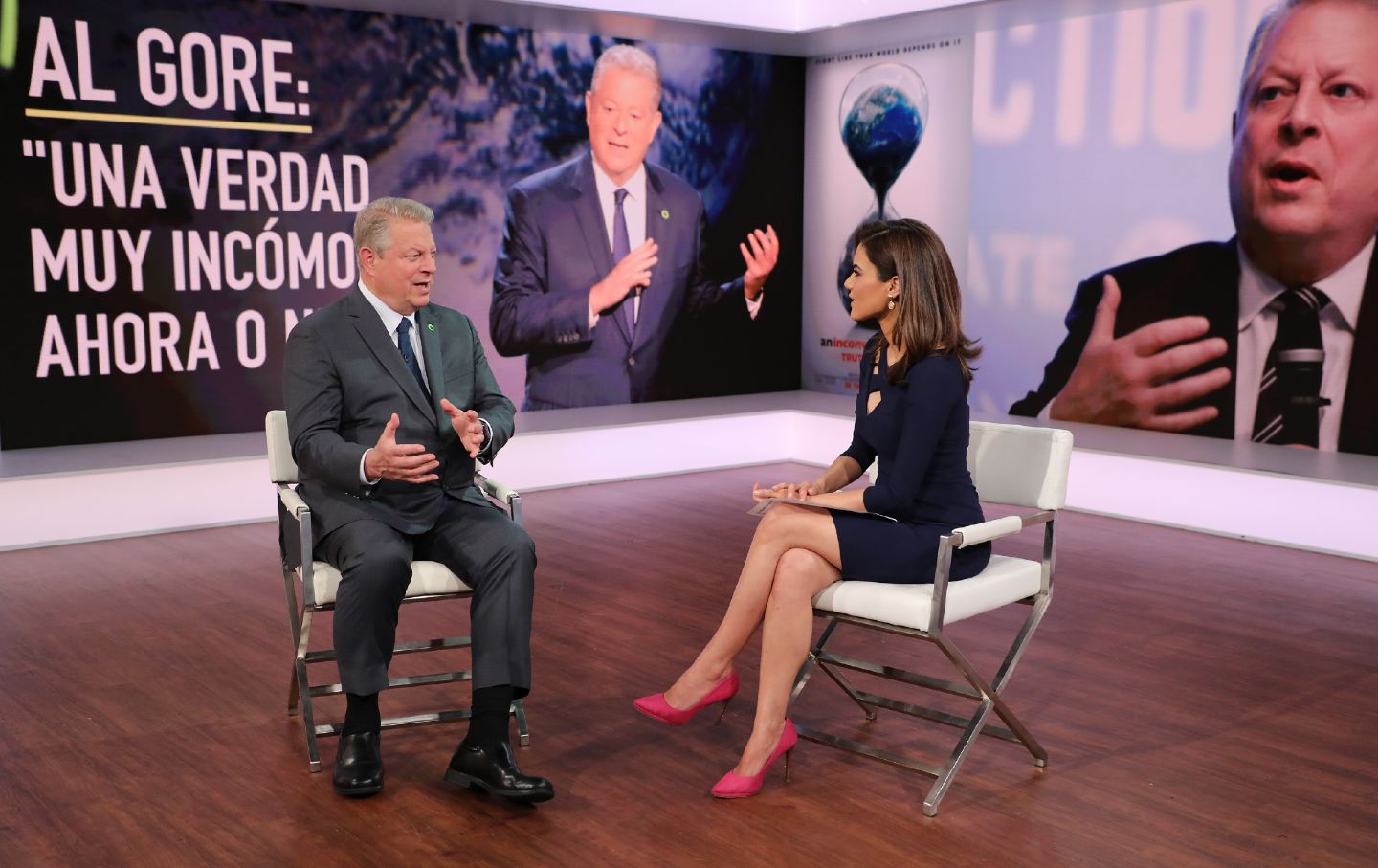
Former vice president Al Gore and Vanessa Hauc are seen on the set of Enfoque Noticias at Telemundo Studios on August 3, 2017, in Miami, Florida.
(Alexander Tamargo / WireImage via Getty Images)In an interview that Noticias Telemundo aired March 29, former US vice president and longtime climate activist Al Gore said he still believes humanity “will solve [the climate] crisis” despite the resistance of a “wannabe dictator” in the Oval Office. To that end, Gore described a tool for holding polluters accountable that journalists will also find valuable.
The nonprofit organization Climate Trace monitors 300 satellites and 30,000 sensors to identify “the specific amounts of pollution coming from every significant [greenhouse gas emissions] source in the world, 660 million of them,” Gore said. “We know who operates them, who owns them, are the emissions going up or are they going down.” Climate Trace has begun issuing monthly reports, enabling journalists to alert communities to nearby emissions sources and question government and corporate officials about reducing the pollution.
Gore was appearing on the Spanish-language network’s new program Ahora: Planeta Tierra (in English, Now: Planet Earth), hosted by veteran environmental journalist Vanessa Hauc; in 2020, Hauc became the first climate reporter to moderate a US presidential debate. Her second question to Gore in the recent interview noted that “89 percent of the world is demanding more climate action,” before asking him, “What does the future hold when the US president is supporting fossil fuels?”
In a clear allusion to Trump, Gore replied that “the most powerful and wealthiest business lobby in the history of the world, the fossil fuel lobby, has captured a lot of politicians and policymakers…. [But] we the people have a right to demand that…we not have to tell our children and grandchildren their futures have been sacrificed to the profits of these big fossil fuel companies.”
Hauc’s question, and Gore’s response, echoes the themes of Covering Climate Now’s 89 Percent Project, which launches later this month. And Hauc’s new show, which streams live on Saturdays at 11 am US Eastern, underscores Telemundo’s long-standing dedication to environmental coverage; the network also devotes a segment of every Thursday evening’s broadcast to the latest environmental developments.
It’s a savvy business move, given that surveys have long found that Hispanic people are the US demographic group that cares most about environmental issues. Roughly two in three (67 percent) Hispanics think the US government “is doing too little to protect the environment,” according to the Pew Research Center, compared to 58 percent of non-Hispanics. Since Hispanics account for a growing percentage of US voters—10 percent in the 2024 national election and higher proportions in some local elections in Florida, Texas, Arizona, and California—they are a voting bloc that politicians ignore at their peril.
Telemundo’s commitment to climate coverage is paying off. The network’s 6:30 pm news program registered 7 percent growth in 2024, according to Nielsen, making it the fastest-growing broadcast news source in the United States in either Spanish or English. Telemundo has 31 affiliate stations in markets across the US that reach a total of 12.5 million people a month—a true powerhouse. Noticias Telemundo is also the fastest-growing Spanish language news source on TikTok, Facebook, and X.
In accordance with more than 14,000 scientists around the world, Hauc and her colleagues do not shrink from using the term “climate emergency” for today’s situation. But in introducing the premier episode of Ahora: Planeta Tierra, Hauc pledged “to highlight that the solutions already exist. We’ll tell the stories of those who are part of the solution, who are building a more sustainable planet, and we’ll also show stories that teach how each of us can take part in this change….” In the show’s second episode, Hauc interviewed Jorge Neri Bonilla, editor in chief of Cambio 16, a storied magazine in Spain that recently shifted its editorial focus to prioritizing environmental solutions, notably the importance of protecting Earth’s fresh water supply.
There’s no denying that Trump’s return to the White House carries baleful climate implications, Gore told Huac. Asked how he nevertheless maintains a sense of hope, he replied, “There have been many morally based movements in human history: the abolition of slavery, the effort to secure women the right to vote, to fight against discrimination on the basis of race or religion…. In all of these efforts, there have been times when the advocates felt genuine despair and they felt like, ‘This is just so difficult, I’m not sure we’re ever going to be able to succeed.’” Today is such a time, he said, before quoting Nelson Mandela, who spent 27 years in a South African prison for resisting apartheid before emerging to become the country’s first Black president: “It always seems impossible until it’s done.”

